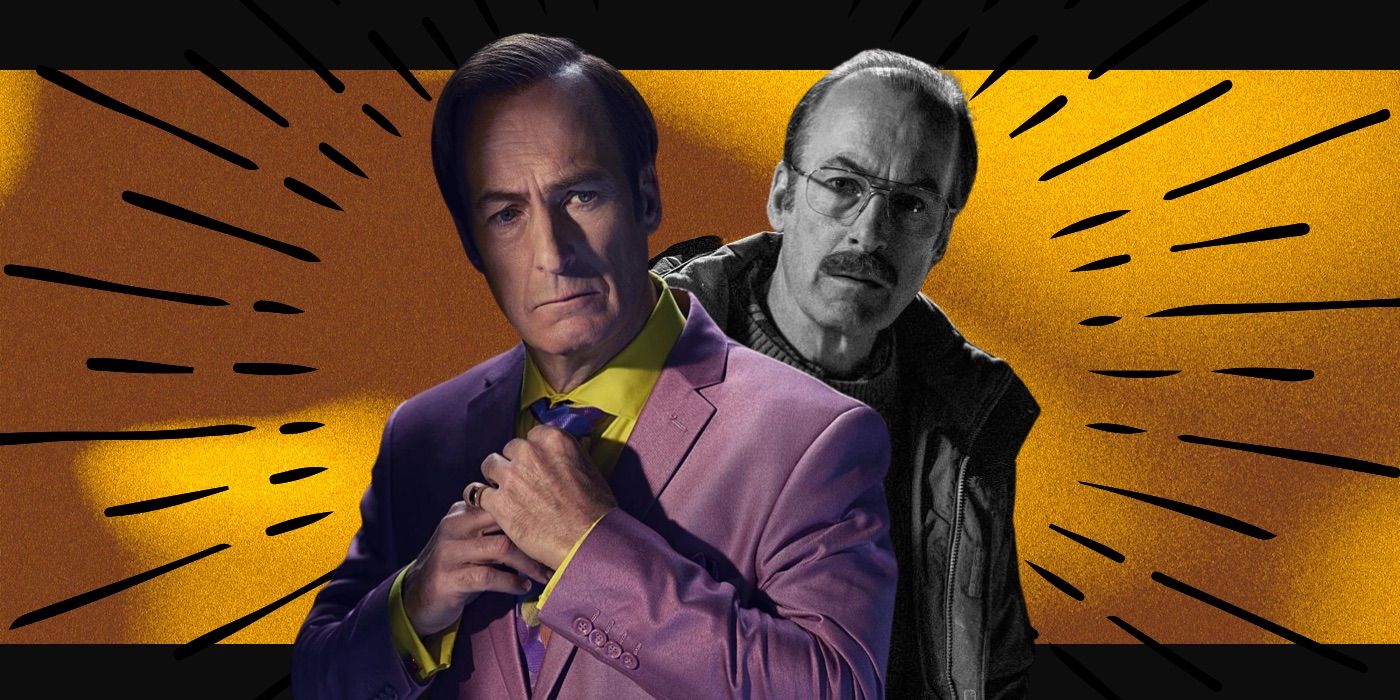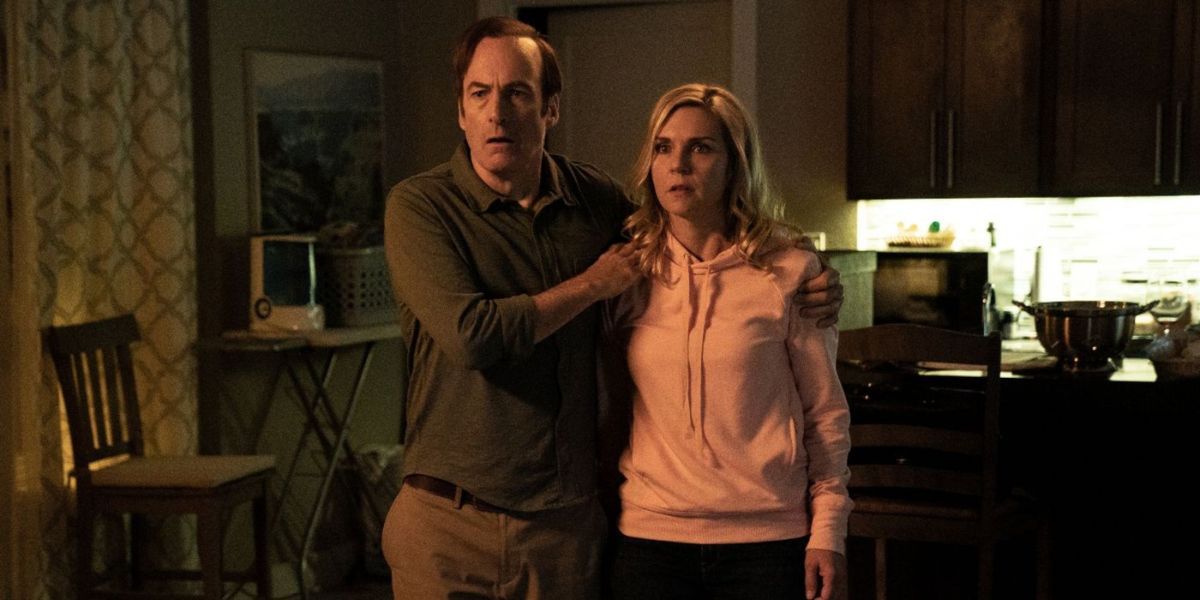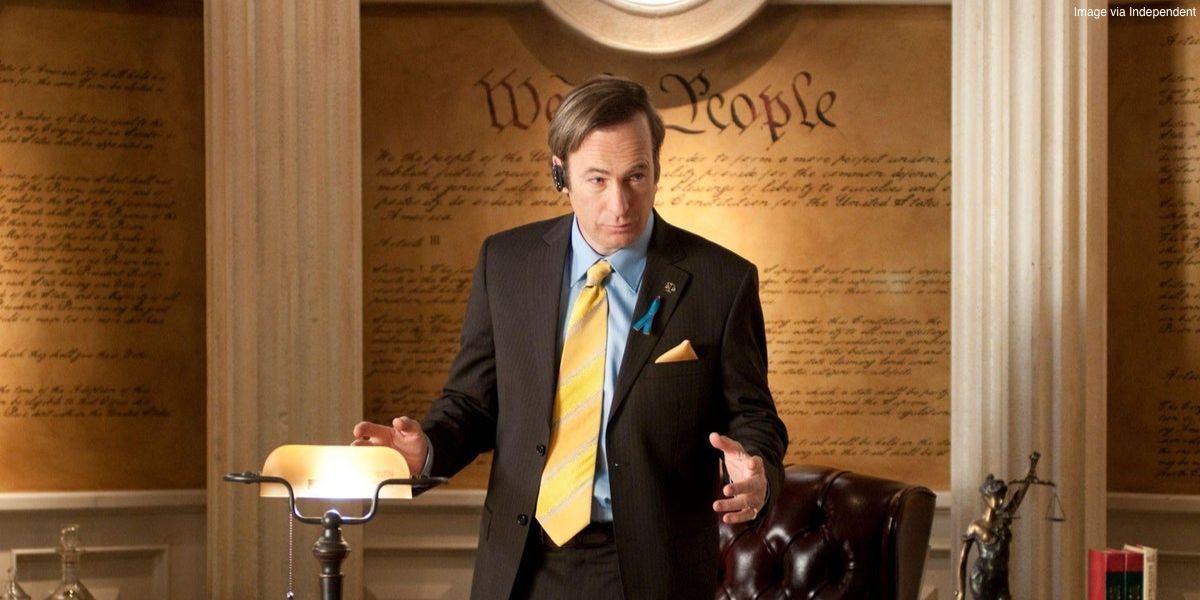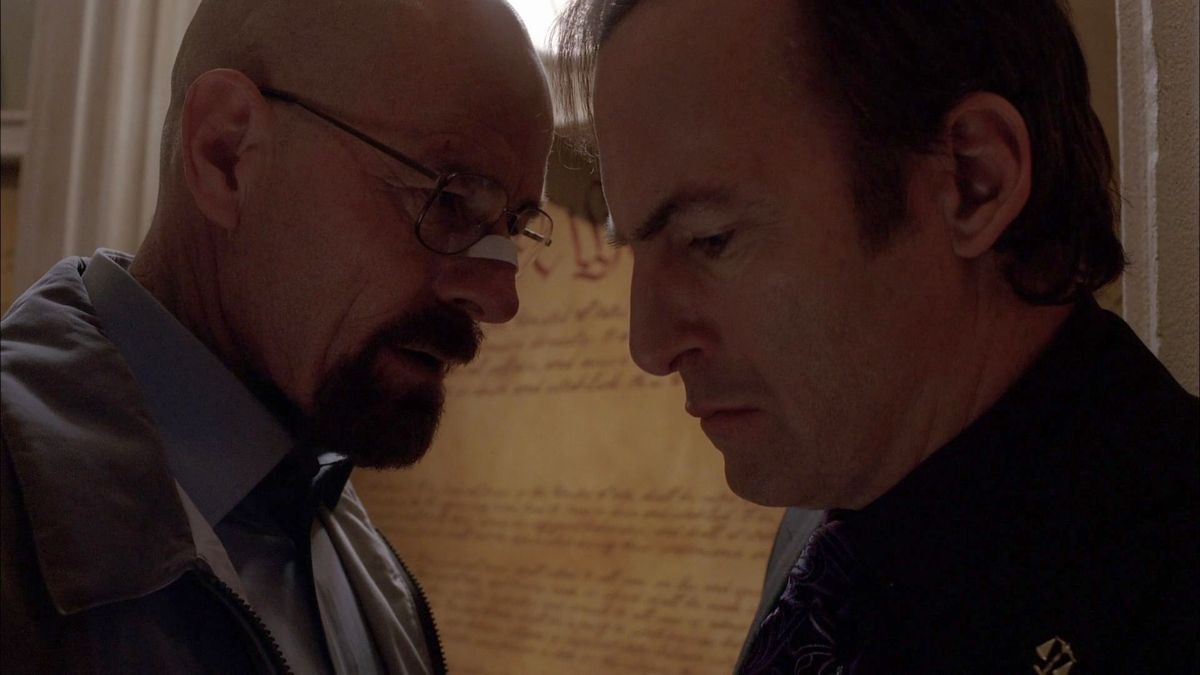Vince Gilligan struck gold with Breaking Bad, the story of Walter White (Bryan Cranston) that he pitched as taking Mr. Chips and turning him into Scarface. By the show's second season, Walt's descent into villainy is in full flow, inadvertently causing the deaths of hundreds, and advertently causing a few more. Season 2 also expands the world of Albuquerque's seedy underbelly by introducing several new characters who eventually become key players in Breaking Bad. Namely, Mike (Jonathan Banks), Gus (Giancarlo Esposito), and the sleazy criminal lawyer Saul Goodman (Bob Odenkirk), who made his debut appearance in an episode titled "Better Call Saul" written by Peter Gould. Cut to six years later, Better Call Saul hit our screens as the prequel spin-off story of Jimmy McGill, a down-on-his-luck lawyer looking to make a name for himself but fighting the urge to use his talents as a con-man.
Although the writers toyed with the idea of Better Call Saul being a half-hour sitcom in which Saul represents various interesting characters, the show itself ended up becoming a similar format to its predecessor. Naturally, the story of how the downtrodden Jimmy McGill became the Saul Goodman we know from Breaking Bad (something that took a full four seasons to officially happen) mirrors the story of Walter White's transition into Heisenberg. For this reason among others, comparisons between the two shows were inevitable, with Better Call Saul excellently surviving the enormous pressure, delivering an arguably superior product to the original. How then was Better Call Saul able to give Jimmy a finale that redeemed his character in spite of the six seasons working to demoralize and harden the Albuquerque lawyer? What made him so different from Walt, that their respective descents into large-scale criminality could warrant two very different fates for their protagonists? It boils down to a few factors.
A Guilty Conscience
The respective stories of Jimmy McGill becoming Saul Goodman and Walter White becoming Heisenberg are naturally similar in many ways, but one key difference is the way in which these stories ended, and thus, what Vince Gilligan and Peter Gould chose to say about the different kinds of men they were. While Walt in his cruel and prideful downfall was sentenced by the writers to both death and illegal infamy, Better Call Saul saw Jimmy turn down a cushy seven-year stint in a white-collar establishment due to a guilty conscience. It could be argued that Walt also experienced a guilty conscience in the finale of Breaking Bad, in his decisions to save Jesse (Aaron Paul) and, more effectively, admit to Skyler (Anna Gunn) that he did it all for himself, not the family. However, Walt had more to gain from this return to Albuquerque, specifically tying up all his loose ends, defeating his enemies, and ensuring his money would be given to his family. Jimmy's conscience, on the other hand, is personified purely by his beloved Kim Wexler (Rhea Seehorn).
One of the genius creative decisions from the very first frames of Better Call Saul was the choice to include a dual-timeline, making it about Jimmy's life after the events of Breaking Bad as well as before. His story in Omaha under the false identity of Gene highlights that the events of Breaking Bad (and thus Jimmy's association with Walter White) is the character's biggest low point, making Walt the face of Jimmy's rock bottom. Not only does this establish Walt as a worse person through this lens, but it also establishes the events after Jimmy became Saul (and legally represented Walt) as his bridge too far, allowing for his redemption to take place as a victim of Heisenberg's villainy. Jimmy, of course, accepts the blame for his own part in these crimes, but this is brought on by his relationship with Kim, for whom he would rather suffer in an unpleasant prison for eighty-plus years than to see her be punished due to his influence. Compare this complete 180-degree turn to Walt ordering the Neo-Nazis to kill Jesse towards the end of Breaking Bad, someone Walt often saw as being like a son.
The Alter Ego
As much as their worlds and ensemble characters would have you believe that Jimmy and Walt are cut from the same cloth, ultimately they couldn't be further from it. When Walt finds himself in over his head with Tuco (Raymond Cruz), he decides to adopt the persona of Heisenberg, a bald-headed tough guy named after the famous German physicist. From this point onwards, the line between Walt and Heisenberg begins to blur, eventually making one indistinguishable from the other, and the original Walter White is dead. Jimmy, however, has always approached his pseudonyms as characters and nothing more — Saul, Gene, Viktor, Jeffrey Steele, even Kevin Costner (a brilliant payoff to a throwaway joke from Breaking Bad). When Walt is killed and captured at the end of his story, the crimes of Walt and Heisenberg are one and the same. With Jimmy, however, he takes the opportunity to disown the Saul Goodman moniker, no longer hiding behind the facade, and accepts his comeuppance head-on as Jimmy McGill. This proves that the cold money-hungry Saul was in fact a protective shell for Jimmy all along, and that adopting the Saul character never truly killed the sentimental and sympathetic Jimmy that was always inside.
It's What You Do That Defines You
When we meet Walter in Breaking Bad, he is a victim of the world around him, whose talents have been overlooked. We meet Jimmy in much the same way; however, unlike Walt, Slippin' Jimmy's talents are almost exclusively illegal. That is the curse of Jimmy McGill. His skill set tempts him to commit crimes, conflicting him morally, while Walt's chemistry talents could be used for a number of things. What began as a desperate cash-grab for the cancer-diagnosed Walt soon became an empire he ran purely for the joy of it. Ultimately, while their dilemmas are similar, their redeemability boils down to their choices.
Walt's colleague-turned-rivals Gretchen and Elliott Schwartz (Jessica Hecht and Adam Godley) remain civil despite Walt's decision to leave the company, and even offer to financially support him. Despite this, Walt still sees them as his enemies. Jimmy's brother Chuck (Michael McKean), meanwhile, actively conspires against his brother succeeding in the field of law, despite Jimmy's unrequited love and care for Chuck. How the two men respond to these opposite circumstances reveals a lot about the men they are at heart. While Walt begins his story as a victim of circumstance, Jimmy remains one for the entire story, even after Chuck's demise. In the two respective finales, these pivotal relationships return to bookend the stories. For Jimmy, it's regret, that in spite of Chuck's monstrous unfairness towards him, Jimmy still feels like he could have done more to help Chuck. Walt, on the other hand, visits Gretchen and Elliot with a death threat, scaring them into handling his money for his own family's gain. These men could not be further from each other.
What dies in Walt is what lives in Jimmy — his conscience — and while Jimmy needs the character of cold-hearted Saul Goodman in order to hide his true feelings from the cutthroat criminal world, Walt's Heisenberg moniker only works to reveal Walt's true self. If Breaking Bad is the story of Mr. Chips becoming Scarface, Better Call Saul is the story of Mr. Chips pretending to be Scarface before admitting to the world that he was always just Mr. Chips.




